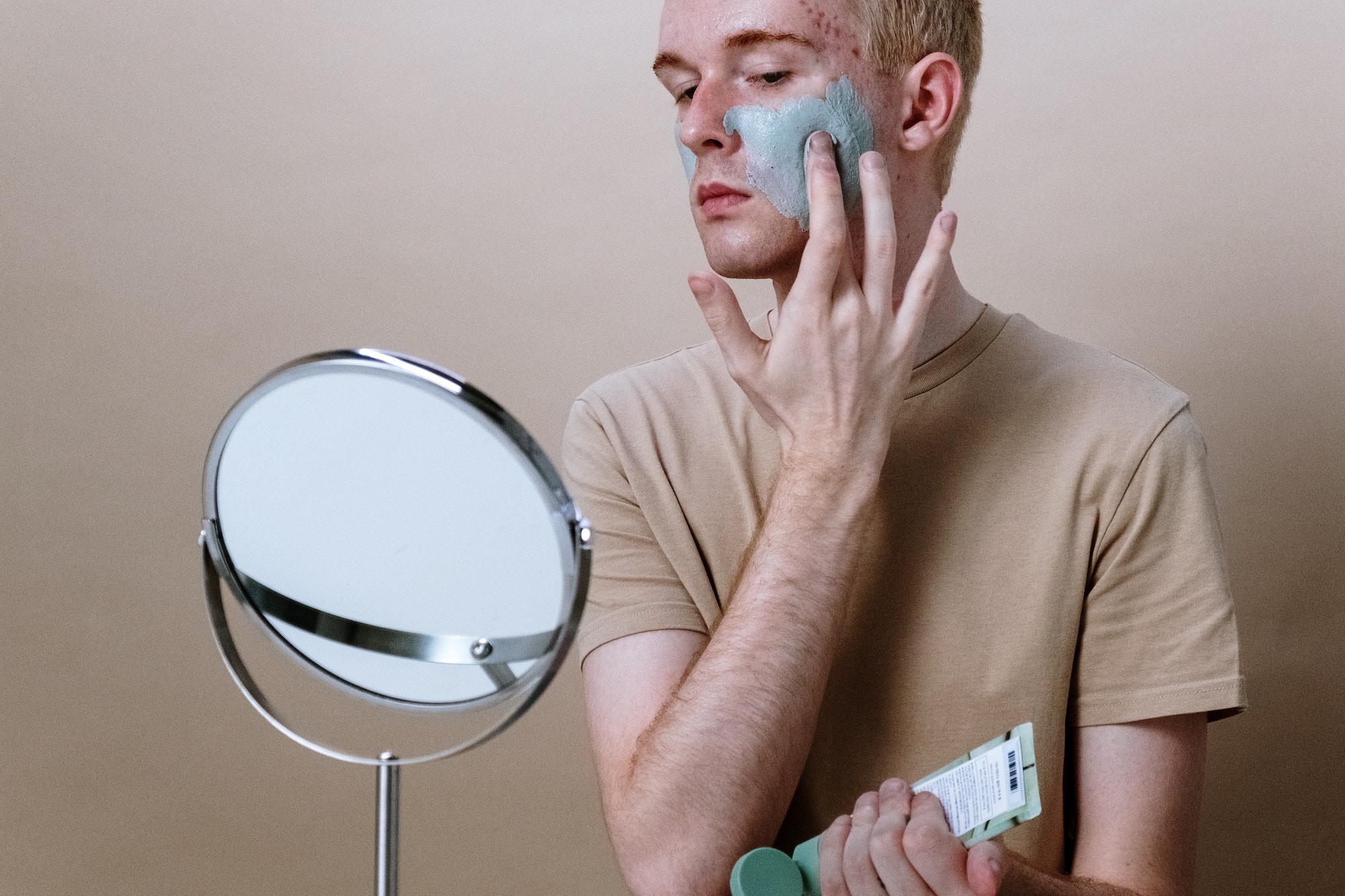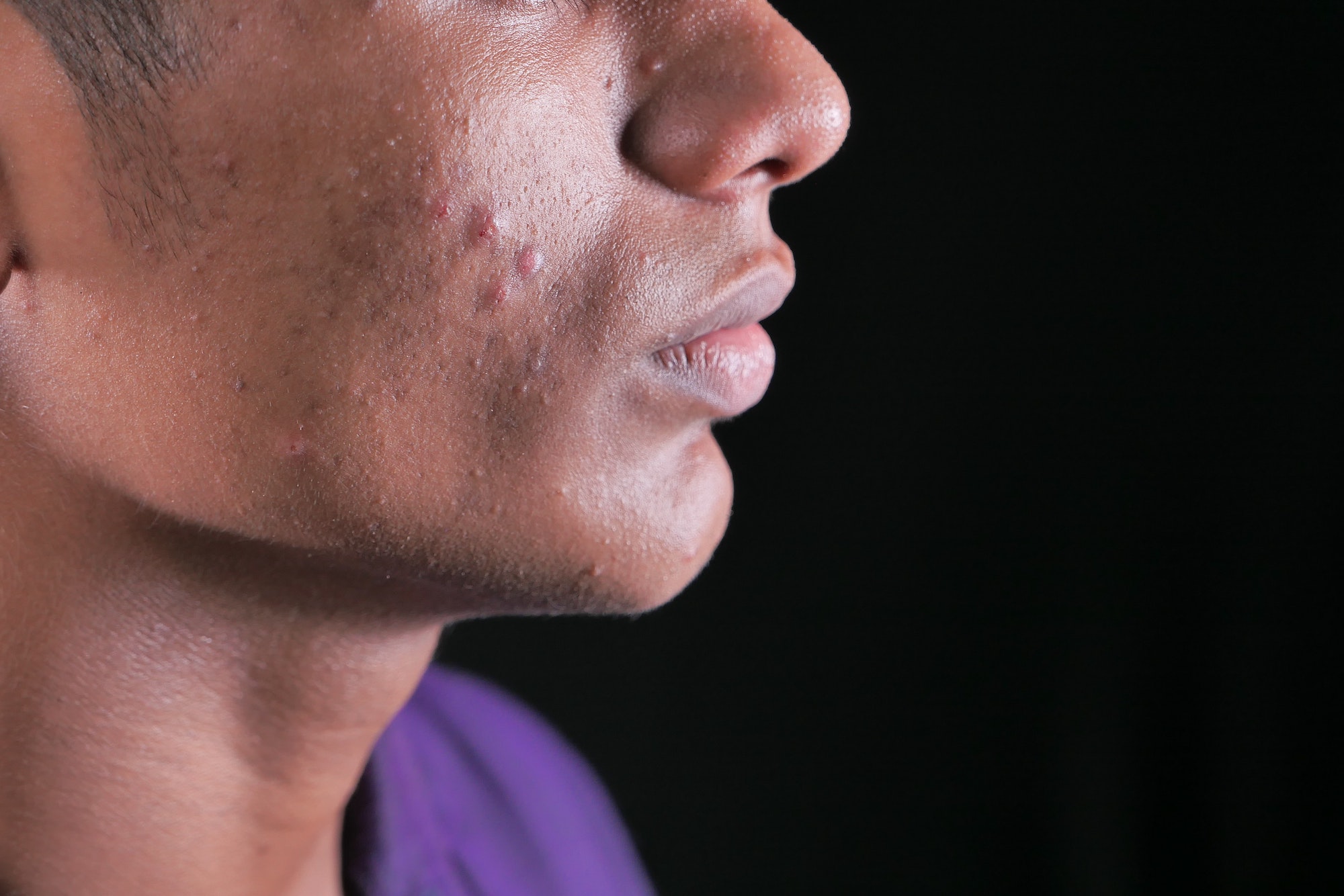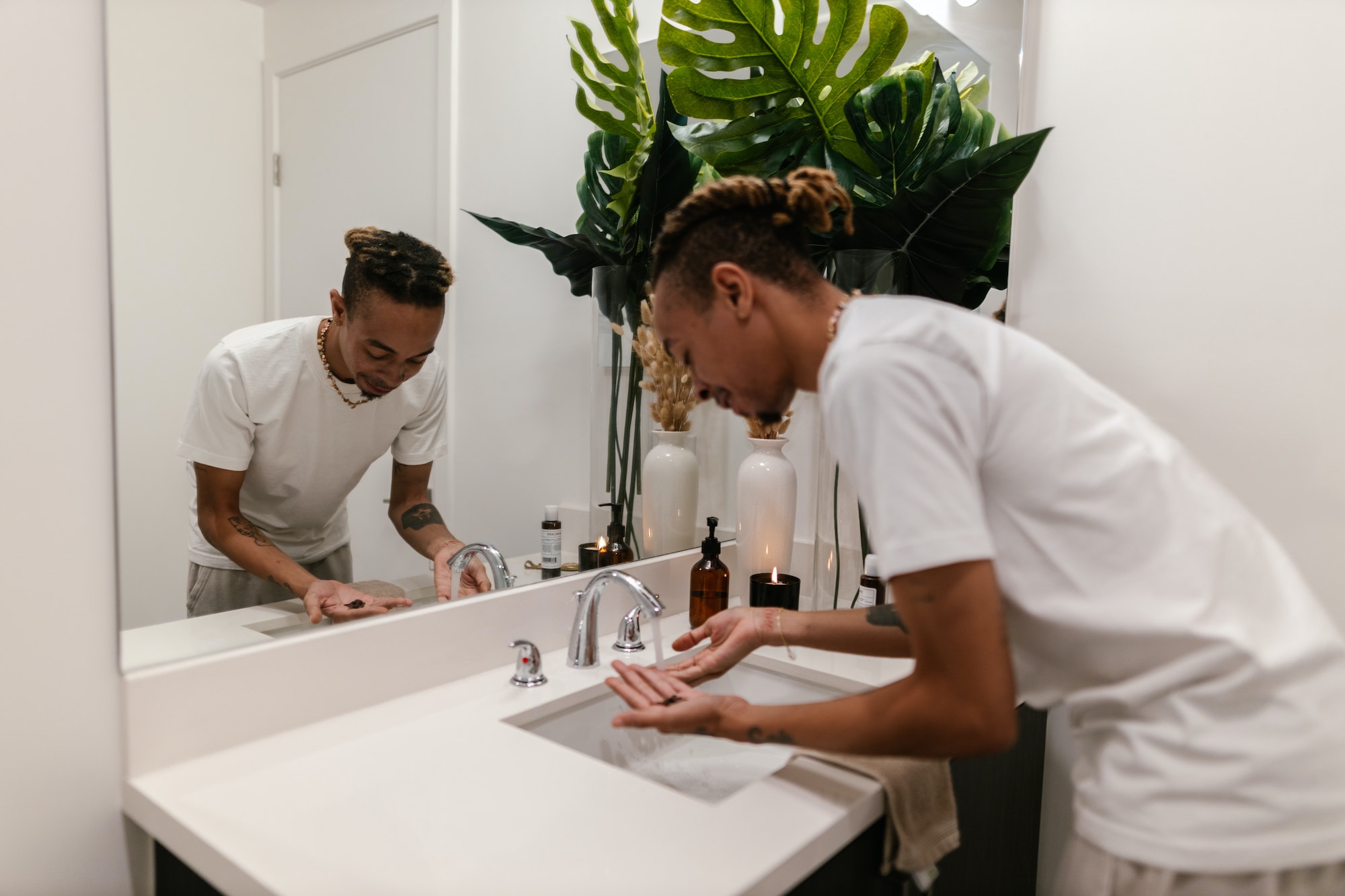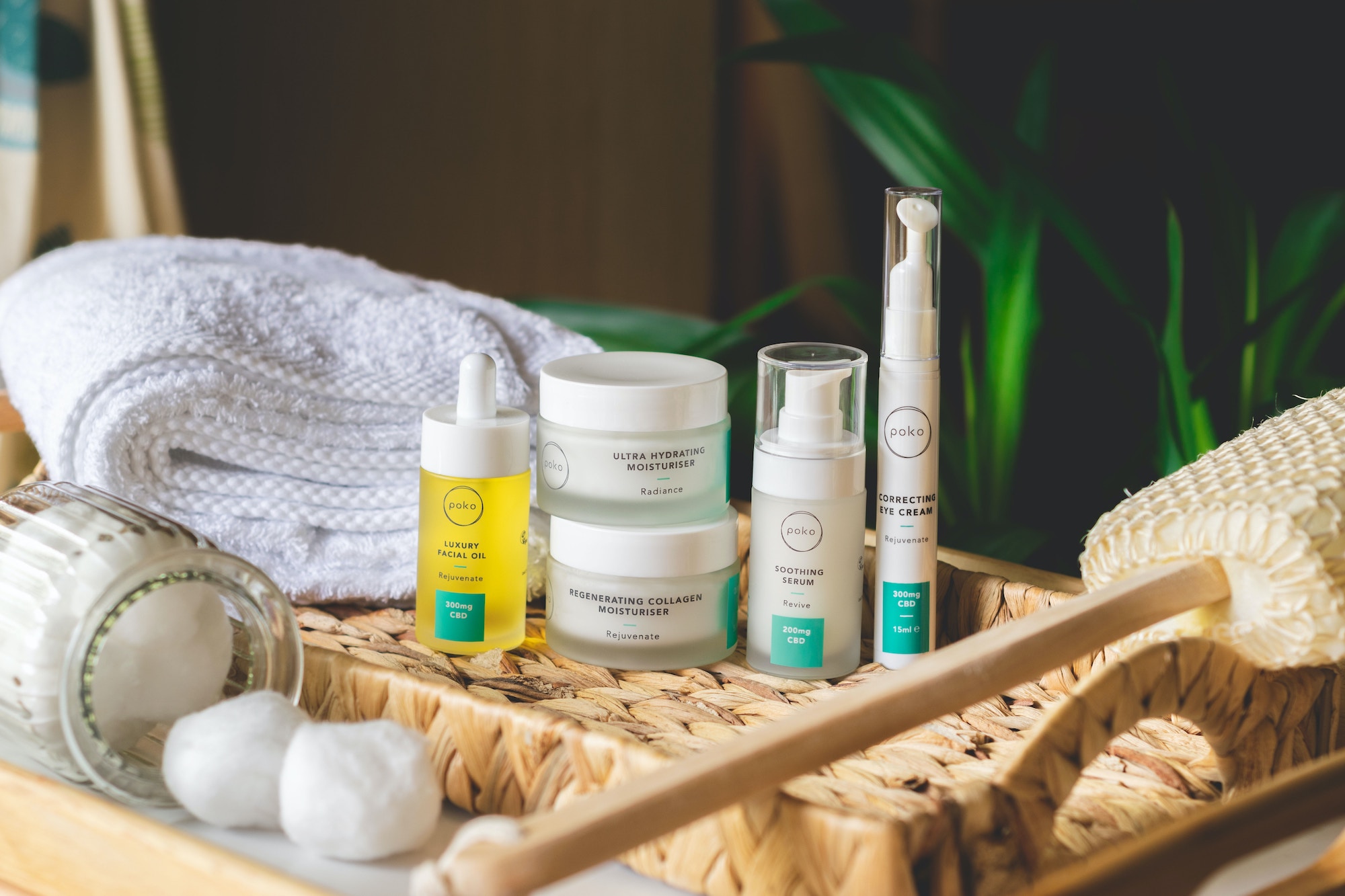Acne is one of the last conditions an adult wants to or expects to deal with. It’s seen as a teenage problem. Though adult acne is more common in women, research shows that men can also experience it.
Again, likely not the news you wanted to hear. However, knowledge is power. Knowing men can get adult acne allows you to take steps to prevent acne so that the condition won’t rear its ugly white or black head the day before a majorly photographed event.
If it’s too late, treatment options exist to help you clear your face short term and for the long haul. Here’s what experts wish men knew about adult acne.

What is acne?
Acne is often thought of as tons of red pimples on the face. The issue is way more technical than that. Acne happens when the hair follicles under the skin, known as pores, get clogged. Cue the breakout.
Oil, or sebum, commonly takes the blame — for a good reason — but our skin actually needs some oil to thrive. Sebum keeps the skin from drying out. In the best-case scenario, sebaceous glands create sebum. The sebum then heads to the skin’s surface through the pore. A skin cell known as keratinocyte comes to the skin’s surface as the body nixes skin cells.
In acne-prone skin, the hair, sebum, and keratinocytes all stick together like the three musketeers. The keratinocytes can’t shed, so the sebum never reaches the skin’s surface. What does pop up on the surface? Pimples. The oil and cells mix, bacteria develop, and inflammation forms. The follicle becomes clogged, and the bacteria-oil mixture hits the skin, giving rise (literally) to pimples or tiny lesions.
“When there are extra sebum and oil, the acne will flourish, and that’s when you see the pink bumps on top of the skin,” says Dr. Orit Markowtiz, a board-certified dermatologist and founder of OptiSkin in New York City. “Cystic acne is a type of acne that involves little capsules that form under the skin when the keratin grows substantially and gets infected.”
You may notice more flakes on the skin than you did as a teen — normal, says Dr. Markowitz.
“When speaking to adult acne in particular, we are commonly talking about milia, which are small, bump-like cysts that are found under the skin,” she says. “These form when skin flakes or the keratin becomes trapped under the skin.”

What causes adult acne?
You know how acne happens, but are there lifestyle factors that trigger the condition? Often, the answer is yes.
Common reasons acne either returns or begins during adulthood (the latter is known as adult-onset acne) include:
- Stress
- Hormones (more common in women, especially around menopause)
- Genetics
- Hair and skin products
- Medication like corticosteroids
- Undiagnosed medical condition
If you notice chronic acne and not just a simple, random pimple, it’s best to call your doctor to rule out any medical issues, particularly in the endocrine system.

How to prevent acne from forming
You can’t wholly control genetics or certain medical conditions — sometimes, it’s just bad luck. However, you can take steps to lower your risk of developing acne.
Wash your face twice daily
Keeping the face clean can keep pores clear, but don’t overclean. Washing the face too often can irritate the skin, harm the barrier, and exacerbate breakouts. Instead, wash your face with a gentle cleanser twice daily and after sweating.
Stick to products that work for you
Different people react differently to products. Some ingredients may be secret weapons for some but irritate the skin in others. Patch test a product on a small area of skin for a couple of days before using the product regularly. Cease use if you notice irritation.
Prevent further skin damage
People with oily skin may be hesitant to put anything seemingly extra on it, fearing it’ll make their skin feel greasy or clog pores. However, it’s critical to apply daily SPF and sunscreen. The skin is the largest organ, and any damage to the barrier can cause dysfunction, making you more prone to breakouts. Sunburns and dryness harm the barrier. Lather up.

Get rid of acne if you have it
Acne can’t always be prevented, but the condition can be treated—nix zits with these tips.
Find your all-star ingredients
If you’re prone to acne, opting for one with retinoids, Benzoyl peroxide, or Salicylic acid may soothe breakouts and prevent them from returning.
Be patient
Most dermatologists suggest giving a treatment four to six weeks to work. In a wedding tomorrow? Try concealer — seriously, it’s fine, guys. Better to dab on some make-up for a day than have a breakout in photos forever, right?
Do not pop the pimple
Hands off the zit. You exacerbate the issue every time you touch or pop a pimple and prolong the healing time.
Use topical medication correctly
Follow the directions on the bottle. Acne medication should be spread across the skin, not just on the area you want to treat today.
Talk to a dermatologist
If you’re concerned, speak with your dermatologist, who can help you customize a skin care regimen. Some people may need stronger products that only a provider can prescribe. There’s no shame in getting help for adult acne, regardless of age.



